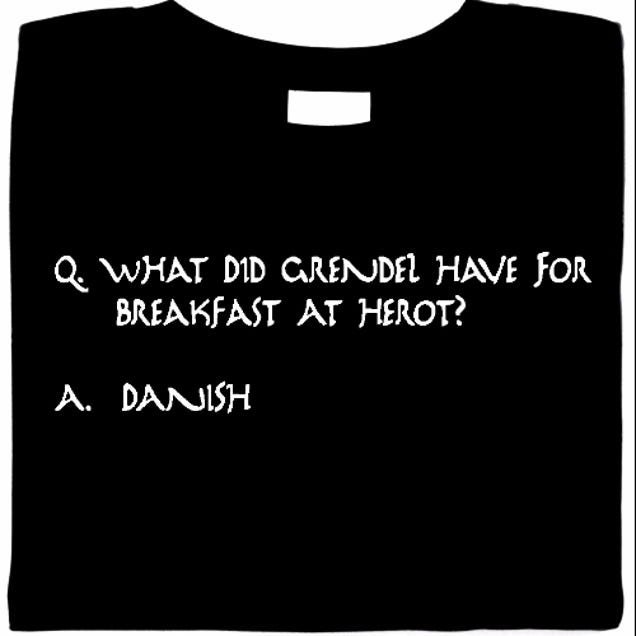When
I was a little boy, my friends and I would play “Star Wars.” We would take turns being either Luke
Skywalker and Han Solo or the villains Darth Vader and the Storm Troopers. Even though we were five, we innately
understood the rules of the game. Good
guys were noble, loved flying in land-speeders and space ships and enjoyed
employing their favorite catchphrases at critical moments (“May the force be
with you!”). Darth Vader breathed
heavily and had magical powers while the faceless Storm Troopers killed
anything that moved (and, fortunately, had atrocious aim!). But we understood the rules of the game and
there was no ambiguity.
One
of the reading challenges of the epic Beowulf
is that the rules of the poem are always shifting. The most important “rule” is the
clear expectations of the good king. A
“good king” in the beginning of the epic is a man who rules by intimidation
(not fighting AS king) and who gives generously to the heroes closest to
him. The good king manages a community
and gives away gold.
Near
the end of the poem, Beowulf the king battles a dragon that has terrorized his
people. The poet next moves the
conversation to the emotional level and imagines not only the details of the
dragon’s hoard but also the dragon’s feelings towards his riches. Like all dragons, the dragon of this epic obsessively
values his immense hoard of treasure.
The poet calls this feeling in the dragon hord-wynne (hoard-joy) – the perverse affection for gold. Tolkien, in The Hobbit, calls this “dragon sickness.” This is the root of the dragon’s evil. “Good” behavior in this poem is signaled by
generosity, not hoarding.
Beowulf
manages to kill the dragon and acquire the dragon’s extensive wealth but dies after the fight. Beowulf utters his final
words and his speech is not a prayer, not an expression of gratitude to his
people, but rather a desire to see that “ancient gold” for which he has
died. We are left to wonder if the rules
for a “good king” still apply, whether Beowulf has redefined the notion of
“good king,” or whether he will use these new riches to reward his men. The poet does not make us wait long for an
answer. Near the end of the poem we are
told that the newfound material wealth is buried under ground, “as useless to
man as it ever was.” The rules are
changing.
He
behaves as a warrior when he should be behaving like a king, and the smoke of
his heroic funeral pyre is still rising when a nameless woman of his tribe
yells out a truth never heard in epic poetry.
The poet tells us that she:
. . . sang out in grief;
with hair unbound, she unburdened
herself
of her worst fears, a wild litany
of nightmare and lament, her nation
invaded,
enemies on the rampage, bodies in
piles,,
slavery and abasement. Heaven swallowed the smoke.
This is the price of
kings who forget themselves: nameless people suffer. This woman reminds us of the cost of
reckless leadership and a martial ethic that is less a solution and more a
never-ending circle of blood. The
progression of her nightmare is chronological and telling, from invasion to
rampage to body-count to slavery to the seeming indifference of heaven. How many women in Syria could utter these
exact words today?
I
often wish that this woman were given a name and, equally importantly, her own
words (rather than a paraphrase). But she
might be the most important nameless character in medieval literature for her
voice uniquely exposes a heroic code that is clearly losing ground. The rules of the poem and the world it
represents are changing. Gold is an ultimately empty rationale for risking
one’s life. Perhaps this
nameless woman, lost in the shadow of myth, reminds us that such “hoard-joy,”
such a blatant embrace of materialism, does not lead to immortality or even
short-term safety but rather the cycle of violence that provides the only stable rule
in the poem.


